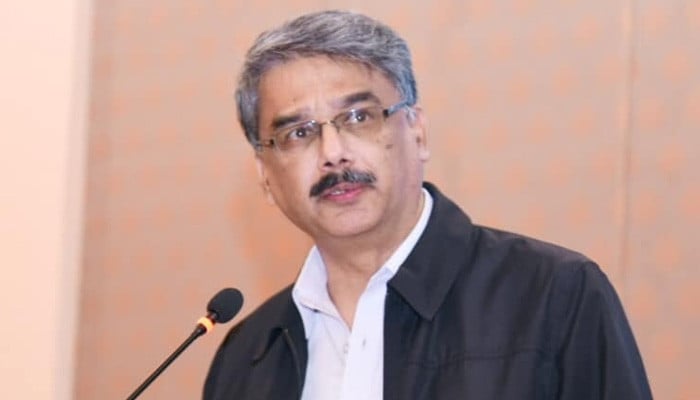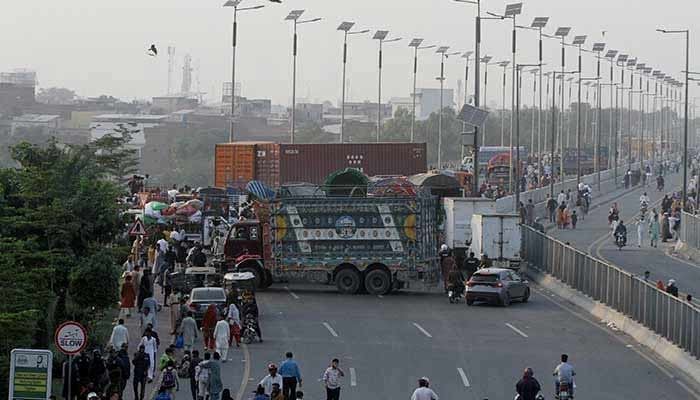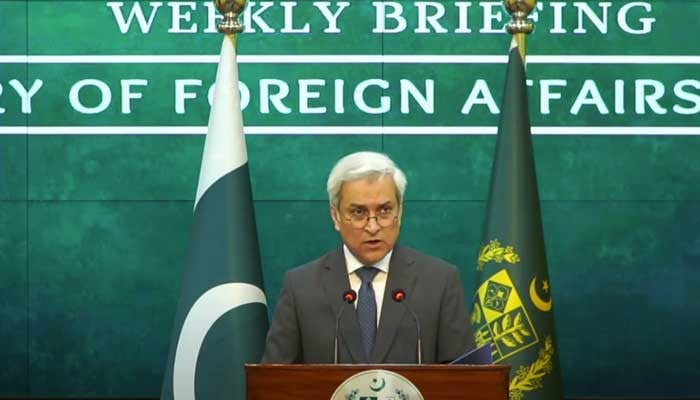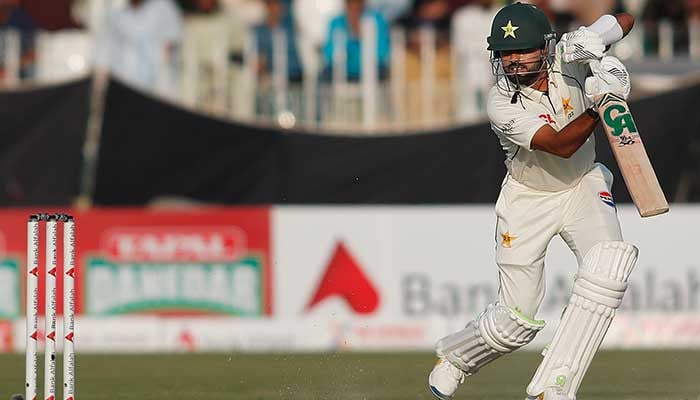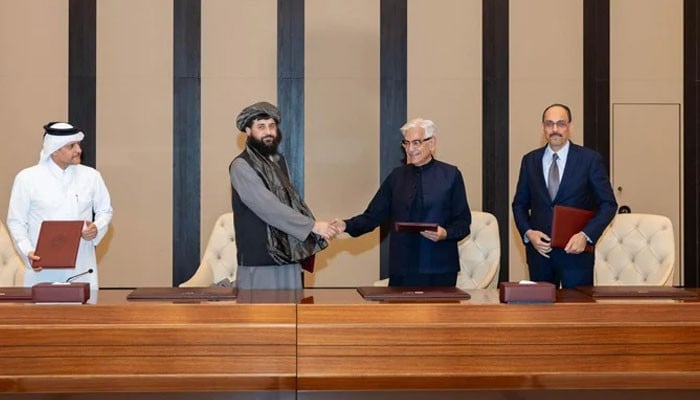
Defence Minister Khawaja Asif shakes hands with his Afghan counterpart Mullah Yaqoob after reaching a ceasefire deal with the Taliban regime in Doha, Qatar, on October 18, 2025. — X@KhawajaMAsif
#Saudi #Arabia #welcomes #ceasefire #Pakistan #Afghanistan
Saudi Arabia on Monday welcomed the ceasefire agreement between Pakistan and Afghanistan, calling it an important step towards lasting peace and stability in the region.
The Saudi Foreign Ministry hoped that this positive move would end border tensions between the two countries.
“Saudi Arabia welcomes the immediate signing of the ceasefire by the Islamic Republic of Pakistan and Afghanistan and the establishment of mechanisms to consolidate lasting peace and stability between the two countries during the round of negotiations held in Doha,” the KSA’s Ministry of Foreign Affairs said.
“The Kingdom reaffirms its support for all regional and international efforts aimed at promoting peace and stability, and its continued commitment to ensuring security that achieves stability and prosperity for the brotherhood of Pakistan and Afghanistan.”
According to the statement, the kingdom hopes that this positive move will end border tensions between the two countries.
“The ministry also appreciates the diplomatic efforts and constructive role played by the State of Qatar and the Republic of Turkey in this regard.”
Pakistan and Afghanistan agreed to an immediate ceasefire during talks in Doha, both sides said on Sunday, after a week of intense border clashes, the worst violence between the South Asian neighbors since they seized power in Kabul in 2021.
The ceasefire has been “finalised”, Pakistan’s Defense Minister Khawaja Muhammad Asif posted on X on Sunday, adding that the two sides would meet again in Istanbul on October 25 to discuss “detailed issues”.
Taliban spokesman Zabiyullah Mujahid has said in a statement that the parties have agreed on a complete and meaningful ceasefire.
Qatar’s foreign ministry, which mediated the talks alongside Turkey on Saturday, said the follow-up meetings were meant “to ensure the ceasefire and verify its implementation in a credible and permanent manner”.
Attack, retaliation
Both sides said the talks were led by Asif and his Afghan counterpart, Mullah Muhammad Yaqoob.
Ground fighting began between the one-time allies and Pakistani airstrikes along their contested 2,600-kilometer (1,600-mile) frontier after Islamabad demanded that they attack the attackers in Pakistan, saying they had stepped up attacks in Afghanistan.
Pakistani forces mounted a befitting response to the aggression, killing more than 200 Afghan Taliban and affiliated militants in self-defense. The army’s media wing, Inter-Services Public Relations (ISPR), said 23 soldiers accepted martyrdom in clashes with Taliban forces and terrorists.
The Taliban deny giving sanctuary to militants to attack Pakistan and accuse the Pakistani military of spreading disinformation about Afghanistan and allowing Daesh-linked militants to undermine its stability and sovereignty. Islamabad denies these allegations.
Militants have been waging war against the Pakistani state for years to overthrow the government and replace it with their own strict brand of Islamic rule.
“The Afghan government must rein in the proxies who are harboring sanctuaries in Afghanistan and are using Afghan soil to carry out heinous attacks inside Pakistan,” Pakistan Army Chief Field Marshal Asim Munir said at a cadet graduation ceremony on Saturday.
A Taliban spokesman said that during the Doha talks, “it was decided that neither country would take hostile actions against the other, and that no assistance would be provided to groups working against the government of Pakistan.”
In a follow-up post on X, he said it reflected the Taliban’s long-standing position that Afghanistan’s territory would not be used against any other country.
He said that the statements made about the agreement do not constitute a joint declaration.
